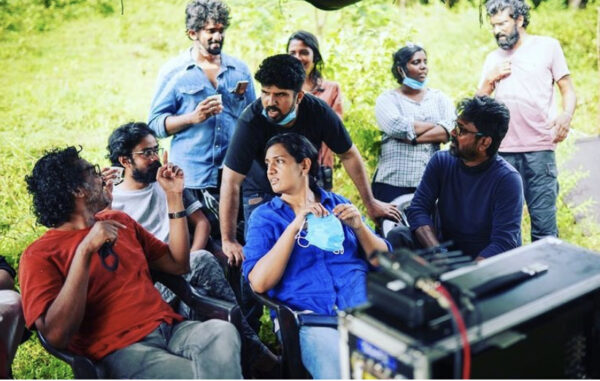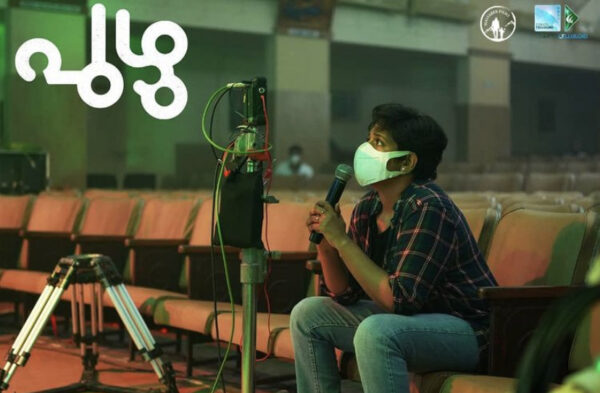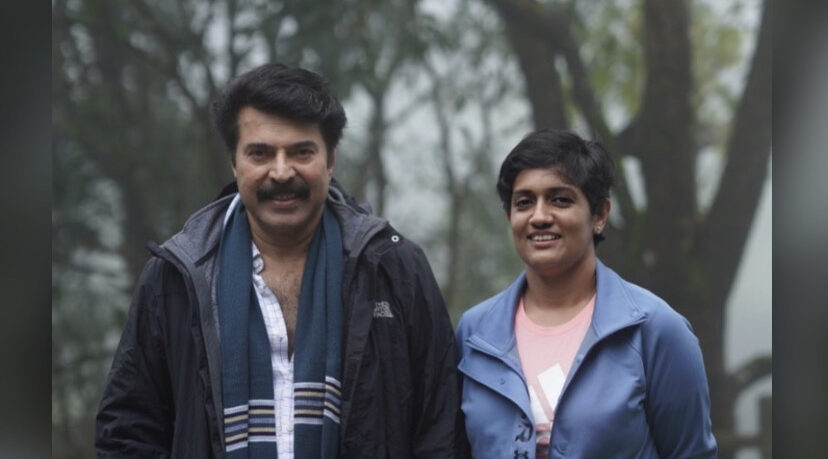Puzhu, the upcoming Malayalam film starring Mammootty and Parvathy Thiruvothu, is all set to premiere on Sony Liv on Friday.
Directed by debutante Ratheena, the film is produced under the banner of CYN-CYL Celluloid by S George in association with Dulquer Salmaan’s Wayfarer Films. Renish Abdulkadher, Rajesh Krishna and Shyam Mohan serve as executive producers.
Ahead of the film’s release, Ratheena speaks to Silverscreen India about how the project took off, her working experience and more.
“Puzhu cannot be classified as a film belonging to one specific genre. It is a socially-relevant family drama with elements of a thriller,” says Ratheena.
The filmmaker reveals that she first pitched a different story to Mammootty and he, in turn, put her in touch with Unda’s writer Harshad, to write the screenplay. “We began working on that project, which was a large-scale film. Just then, the Covid-19 pandemic hit the country and we thought doing such a big project was not feasible. Meanwhile, Harshad ikka had already told Mammookka about another story. Since that was ready, Mammookka said that we could go ahead with it. That’s how Puzhu happened.”
Once the project was confirmed, two other writers Sharfu and Suhas came on board to pen the screenplay, alongside Harshad. Ratheena says they did not take a very long time to complete writing the script, as Harshad had already developed it in the form of a short story.
“The short story that Harshad ikka had written was well-structured. We began the initial production process with that. The trio stayed in Kozhikode to write the screenplay. I used to visit them to discuss developments,” she says, adding that Mammootty was also involved in the discussions at the scripting stage.
When asked about the one thing that made Mammootty say yes to the film, Ratheena says, “It boiled down to the content. He was very confident about this project. Even I felt that the story was touching and very impressive. This is a full-fledged Mammookka film, with him being present in most of the scenes.”
On working with a big star like him in her very first project, she says, “Mammooka has worked with a lot of first-time filmmakers and I am one of them. It is such a great thing for him to do.”
Ratheena mentions that she discussed casting with the writers’ team during scripting. “When we approached Parvathy, she listened to the story and immediately came on board. Mammooka plays the role of a father. Beyond this, I don’t wish to reveal too much about the film.”
Recommended
Aside from Parvathy and Mammootty, Puzhu also features actors Nedumuni Venu, Malavika Menon, Swasika, Indrans, and Jaffar Idukki, among others.
Late actor Nedumudi Venu completed shooting his part for Puzhu just a few days before his demise. Ratheena says she considers herself fortunate to have directed such a legendary actor. “It was a memorable experience working with him. He told me that he was happy to hear a woman’s voice calling out ‘action’ and ‘cut’. He also said that many more women should come into this field, and predicted that in the coming years, the differentiation between ‘male filmmakers’ and ‘female filmmakers’ will fade away.”
She adds, “He was not keeping well at the time, but I was so amazed by his performance. We shot with sync sound and the way he remembered his lines and enacted scenes was flawless. He was such a great actor that when we set frames, he just knew how to move accordingly and use the right expressions.”

The film went on floors sometime in August last year, and was mostly shot at Ernakulam and Vagamon. The cinematography was handled by Theni Eshwar, who had previously worked with Mammootty on the 2018 Tamil film Peranbu.
Ratheena shares that it was Mammootty who suggested roping in Eshwar for Puzhu. “Mammookka set up a meeting with Eshwar. I had watched Peranbu earlier and had just seen his work in Karnan, which released around that time. I discussed Puzhu’s subject with him and he was very happy to work with us. There was a lot of space for healthy discussions and he was an asset for this film.”
Jakes Bejoy is the film’s composer, and Ratheena notes that music plays a significant role in Puzhu. She adds that the composer and her team did a lot of background research for the music and says she looks forward to the audience’s reaction to this aspect of the film.
Asked about the title, the filmmaker notes that there were a few suggestions for it, but she found Puzhu to be apt for the story. “When the audience watches Puzhu, they will understand why we picked this title and perhaps, they would have different perspectives on it.”
Talking about Puzhu’s release on an OTT platform, Ratheena says, “Initially, we did not have this in mind when we started working on this project. It was only after the shoot that producer George suggested a direct OTT premiere. I happily agreed as an OTT release will ensure a wider reach. Puzhu will be released in five languages – Malayalam, Tamil, Telugu, Kannada and Hindi. The film’s content is such that it is relatable and understandable to audiences beyond language and cultural barriers; it is not specific to any one place or time period.”

Ratheena previously served as an executive producer for the Parvathy-starrer Uyare. She has been in the film industry for more than a decade. She earlier lived in Chennai and worked on production and program coordination for television shows and ad films. Later, she went on to work as an assistant to actor-filmmaker Revathi. She then began focusing on the production side of things and Uyare was her first independent work. “Since I entered the industry after getting married and having children, I pursued short courses to spruce up my skills,” she says.
“Over the years, I realised my inclination for direction. While working on Uyare, I began writing the story that I had initially pitched to Mammooka,” she adds.
Ratheena says she is very happy to see more women entering the film industry as technicians. When she began her career, there were not many women working as technicians and even assistant directors were few. “Following the example of rising filmmakers like Anjali Menon, many more women are entering the industry. In Uyare, there were a lot of women working in the team and it was so good to see. Now, many girls are calling me, requesting to work as ADs. This is a big change and I’m so happy about it.”



